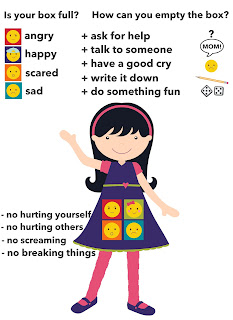Welcome to AuSumness.
Today, I'm going to show off my other passion, scrapbooking and go into thoughts I've had and discoveries I've made with my boys and their different ways of thinking. It might help you, too.
At AuSumness, our goal is to try and help those who work with or have family members and or friends with autism. We are not "professionals" per sae. I do have a degree in the Social Sciences and over a decade of teaching experience and I have two boys who sit at different levels on the spectrum. I read like crazy and try to arm myself with the best methods of dealing with the many symptoms of autism. I want to share my discoveries in hopes of helping others in the same situation.
We want to help people find the awesome in autism and we want to supply you with awesome ways to live with autism.
My husband was just telling me the other day, that we are so bombarded with all of this information, in general and with autism and we're rarely given solutions. That's why we are here. Not to just tell you what you probably already know, but to suggest things that might make your life and your loved ones with autism, easier.
Presently, I'm on "vacation" and I've had a bit of a "eureka!" moment. I've always known that my kids think nothing like we do, which makes everything so much harder. One line I hear again and again and you probably do too, is "they have to learn". I'm not sure why this line drives me even more nuts, but I'm sure it stems from the whole different ways of thinking that autistic people do.
Here's the story...
My husband went walking through the mountains with my oldest son, who sits higher on the spectrum. They've been on this trail before and my hubs wanted to see if my son could get them to their destination without help. He did ok, but they got to a point where he wasn't sure and my husband told him to look around and see if he recognised something. His response, "Oh, yeah! I recognise the moss on that rock."
For most of us, we would notice the larger more noticeable things or perhaps the juxtaposition of the sun in the sky. For many people with autism, they see the tiny details, while we focus on the larger picture. As we know, socialisation is a very difficult skill to master for some folks with autism. We were taught or perhaps it's even inherent that we learn through looking at others, but my boys just don't seem to get this.
I might assume that has everything to do with focusing on "other" things rather than the actual behaviour. If I say to either of my sons, "Look at that man, there. How he's doing that." They might not notice the actual skill I'm wanting them to see and perhaps learn, but that he's missed a hole while lacing his shoe or that he has more eyelashes on one lid than the other.
My husband asked my son if he should leave this night or early in the morning. I saw the hurt look on my husband's face when my son responded, "tonight". Then he asked why and my son responded, "Because tonight I can kiss you before you leave and tomorrow I'll still be sleeping and can't kiss you goodbye." I mean, how sweet is that? What a different way to think about the situation and how different it is than what "we" might think.
Things are much more difficult with my younger son. He's not very verbal and his language skills are very, very low so communication is already difficult to begin with. Couple the difficulties of communication with this other way of thinking and things can get very difficult for "us".
I'm hoping after reading this, you might also have a "eureka!" moment or when you notice odd behaviour or hear something odd or maybe even painful, that you stop and consider that they may be looking at things completely different and they are expecting a completely different reaction from you then what you would consider from their perspective.
Don't be afraid to ask why they thought or said that. My youngest just hates questions, but we still keep asking. Try to be as patient and kind as possible. It will certainly give you better results. You may also want to consider out side of the box thinking in order to understand your children better. At the very least, understand that the wiring of their brain is completely different than yours and try your best not to make it personal.
You know the saying, "seeing the wood for the trees". Consider it when you're having troubling moments and try to see things how they are and how they are for that person.
I'm sure it is equally as frustrating for them as it is for us that we never think like they do.
I hope this was helpful for you and I wish you the best of luck.
Last week, I had a helpful, free printable for you. It might help with emotional overload and give you guidance to help your friends, family and loved ones with autism or just in general.
Click on the image to get to last week's blog. If you are interested, you could join our group on Facebook and as always, feel free to leave any helpful links in the comments.





No comments:
Post a Comment